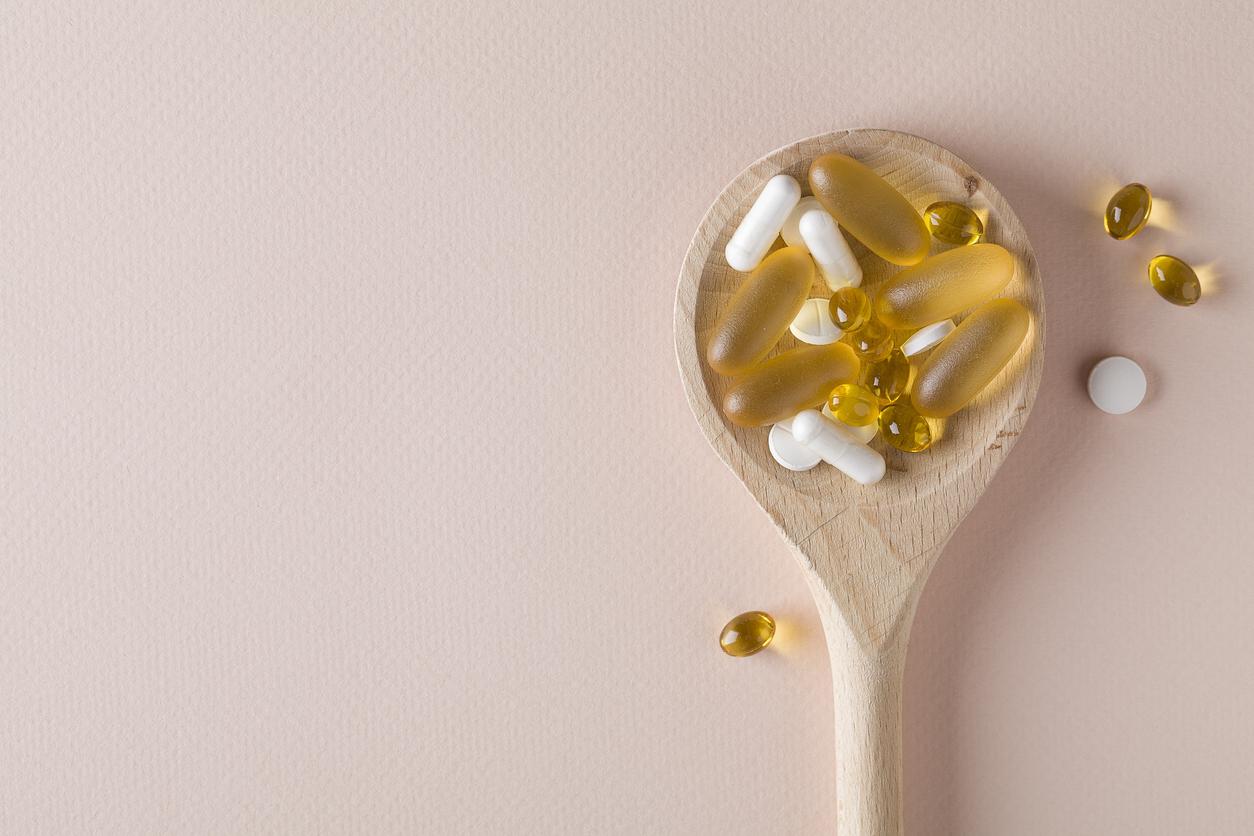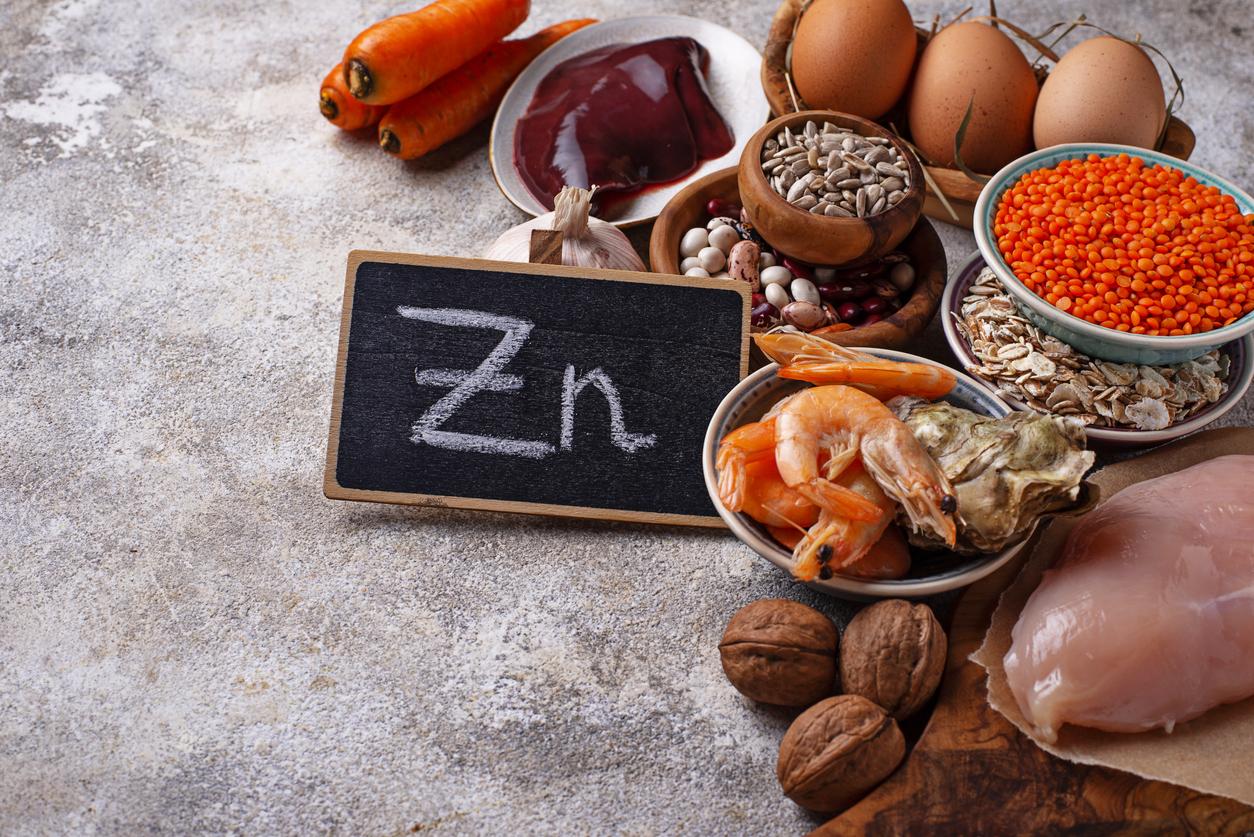Zinc boosts the immune system, plays a key role in fighting germs, healing wounds and more.

- Zinc is present in several foods such as meats and nuts.
- While beans and whole grain products contain zinc, they also contain antioxidants called phytates that interfere with the body’s absorption of zinc.
- Zinc helps fight infections, reduce the deleterious effects of AMD and promote wound healing.
Zinc is all good! This trace element, contained in meats, nuts and in food supplements, is also an antioxidant: “Antioxidants help prevent cell damage that contributes to heart disease, cancer, and other serious health issues“, says dietician Julia Zumpano. But its benefits don’t stop there.
Zinc allows you to recover more quickly in the event of a cold snap
Zinc helps build immune system cells that fight germs. In the event of a cold, for example, sucking lozenges or taking it as a supplement will help you get back on your feet more quickly.
A systematic review of 28 studies, carried out in 2021, found that using zinc lozenges, gels or nasal sprays helped people feel better two days earlier than those who did not use zinc – without for lessen the severity of cold symptoms.
Zinc reduces the deleterious effects of AMD
Zinc is also known to protect eyesight: studies suggest that taking 80 milligrams (mg) of a zinc supplement, along with other eye health vitamins, can reduce the risk of advanced age-related macular degeneration (AMD) by 25 percent and vision loss.
“Age-related macular degeneration is a chronic eye disease that affects the central area of the retina. It develops from the age of 50. It is the main cause of visual impairment in the elderly“, noted health insurance.
People with AMD are at risk of losing their sight if the disease progresses. “Your retinas (the part of your eyes that converts light into signals your brain uses to create images) have a high concentration of zinc. Extra zinc in the form of supplements can help protect your retinas from harmful cell-damaging free radicals”, says Julia Zumpano.
Zinc is beneficial for diabetics
Zinc also lowers blood sugar and cholesterol. A low level of zinc, seen in people with Type 2 diabetes, can rapidly aggravate the disease and increase the risk of strokes and life-threatening heart disease. Zinc is also beneficial in gestational diabetes, according to a 2021 study.
The fourth benefit of zinc is its ability to promote wound healing. Zinc oxide applied directly to the skin is a proven treatment for diaper rash, a dermatitis of the diaper area due to skin irritation, says the‘Health Insurance.
Finally, zinc improves the quality of sperm: a small study found that people with infertility saw their sperm quality improve after taking a zinc supplement.
The good news is that the body only needs small amounts of zinc to stay healthy, concludes the dietitian. The amount varies from 2mg from birth to 6 months, to 11mg for pregnant women.














